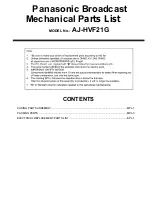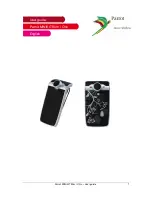
WIRELESS, BATTERY OPERATED BELL SUITA ST-918
• the device is ideal as a doorbell, an internal calling device or a personal alarm device,
• useful at home, at a company, and for people who need care,
• the doorbell installation is not needed,
• easy to mount,
• radio transmission (433.92 MHz operating frequency),
• coding: 256 codes (code factory set, no possibility of the code changing by the user),
• the bell is battery operated, 3 x R6 batteries,
• the push-button battery operated, 1 x 12 V battery,
• operating range*: 80 metres in open area,
• the push-button is not adapted to changeable weather conditions,
• 15 tunes to select (polyphonic tones),
• the push-button operating temperature range: –20°C to 35°C,
• volume: 80 dB.
TECHnICAL DATA
SUITA BELL:
Power supply: 3 x 1.5 V R6 alkaline battery
Power consumption: standby mode: 0.5mA, normal working mode: 200 mA
Bell sound: 15 tunes to select (polyphonic tones)
Sound level: approx. 80 dB
Coding: 256 codes (code factory set, no possibility of the code changing by the user)
Degree of IP Protection: IP 20
Protection class: III
Operating temperature range: 0°C to +35°C
Dimensions [mm]: 79 x 116 x 32
THE PUSH-BUTTOn:
Power supply: 1 x 12V 23A battery
Operating range*: approx. 80 m in open area
Transmission: radio
Operating frequency: 433.92 MHz
Coding: 256 codes (code factory set, no possibility of the code changing by the user)
Degree of IP Protection: IP 20
Protection class: III
Operating temperature range: -20°C to +35°C
Dimensions [mm]: 80 x 40 x 17
* The given operating range is for open area, under ideal conditions (no obstacles), If there are any obstacles between the transmitter and receiver it is necessary to predict
the operating range decrease as follows: for wood and gypsum: by 5 – 20%, for bricks: by 20 – 40%, for reinforced concrete: by 40 – 80%. It is not recommended to use
RF systems within the presence of some metal obstacles because of substantial operating range decrease. Power transmission lines, either air or underground, and GSM
transmitters close to the equipment have a negative effect on the operating range.
ASSEMBLY InSTRUCTIOn MAnUAL
1. THE BELL AnD PUSH-BUTTOn ASSEMBLY
ST-919 bell may be used as a standalone device or may be mounted on the wall with the use of screws (Fig. 2).
The bell push-button should be secured to a ground with the use of a double-sided adhesive tape (included) or two screws (in this case the push-button previous
disassembly is needed) (Fig. 5).
Do not mount the push-button directly onto a metal substrate, because it may limit its operating range.
2. THE TUnE SELECTIOn
In order to select the bell tune press a button placed at the bell side (Fig. 1).
There are 15 tunes to select (polyphonic tones).
Every button pressing causes the tune change.
The selected tune will be reproduced by the bell after the push-button pressing.
3. CODIng
In order to avoid mutual disturbances of neighbouring independent bells the devices are coded (256 various codes).
The code is factory set and there is no possibility of the code changing by the user.
4. THE BATTERY REPLACEMEnT
The bell:
A battery is available at the bottom of the bell casing, after removal of the battery socket cover (Fig. 2).
Please, remember to place the batteries according to their polarisation. Otherwise the bell damage is possible.
The push-button:
A battery is available after the blue plug removal and levering the latch placed at the push-button side, with the use of a screwdriver (Fig. 4, 5, 6).
Mount the battery as shown in the figure inside the push-button casing.
The Declaration of Conformity is on our Website www.zamelcet.com
gB
Summary of Contents for sundi SUITA
Page 20: ...AR ...




































